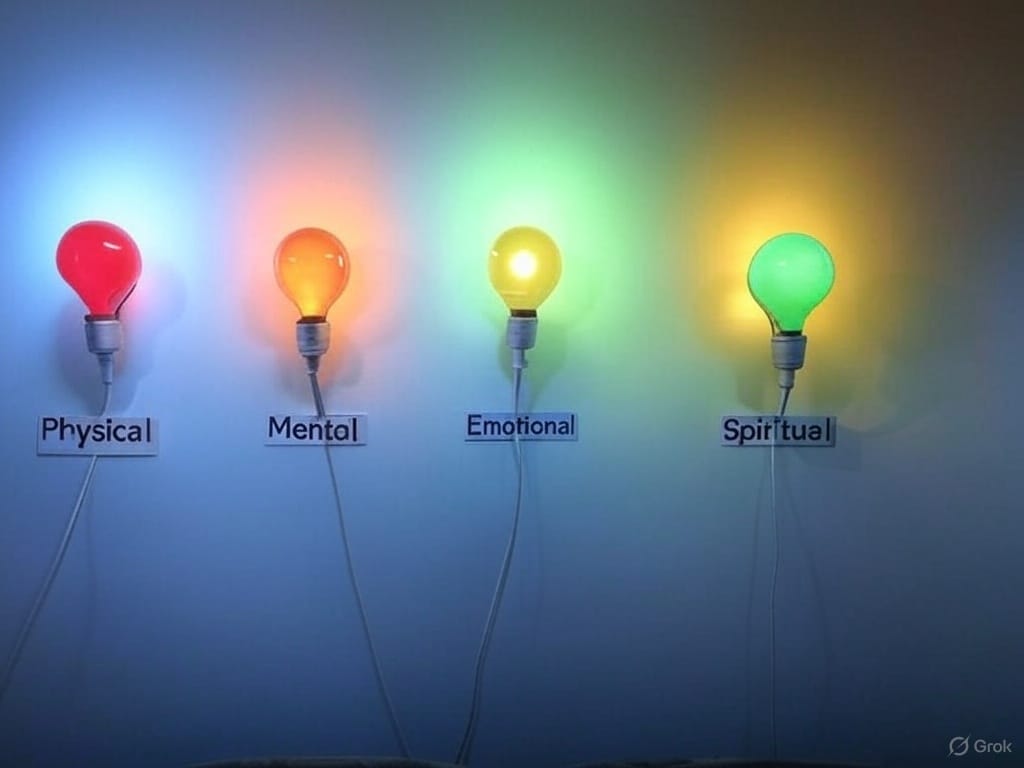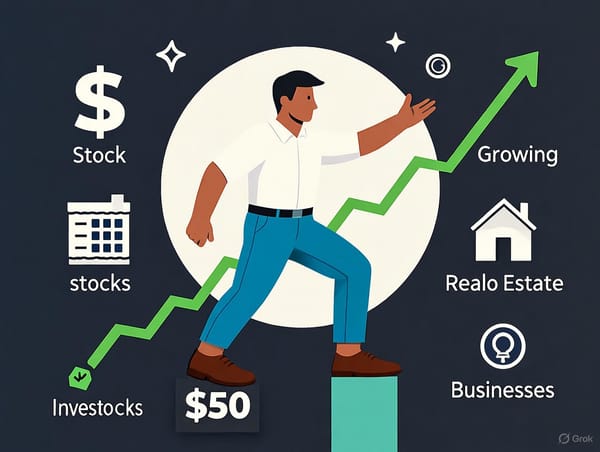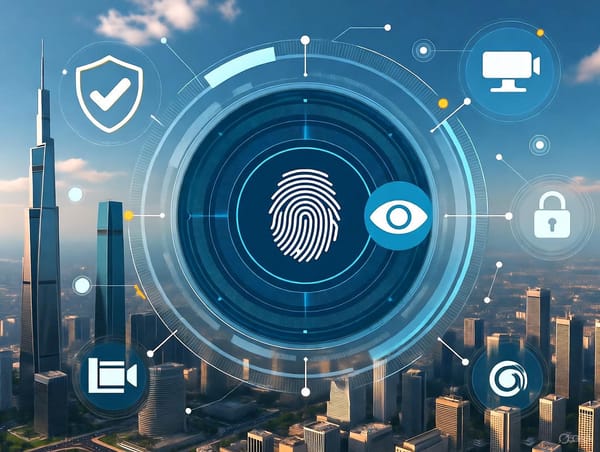The Four Dimensions of Energy
By nurturing the four dimensions of energy—physical, emotional, mental, and spiritual—you can unlock a vibrant, balanced life filled with vitality and purpose.

Energy is the currency of life. It powers our actions, shapes our emotions, fuels our thoughts, and connects us to something greater. But energy isn’t just about how much coffee you drank this morning or how many hours you slept last night. It exists in four distinct dimensions—physical, emotional, mental, and spiritual—each playing a critical role in how we show up in the world. Understanding and nurturing these dimensions can transform your health, relationships, productivity, and sense of purpose. Let’s dive into the four dimensions of energy and explore how to optimize each one.
Physical Energy: The Foundation of Vitality
Physical energy is the most tangible dimension. It’s the raw fuel that keeps your body moving, from running a marathon to simply getting out of bed. It’s influenced by sleep, nutrition, exercise, and rest.
- Why it matters: Without physical energy, everything else suffers. A tired body drags down your mood, clouds your thinking, and disconnects you from your purpose.
- How to optimize it:
- Sleep well: Aim for 7-9 hours of quality sleep. Create a bedtime routine—dim lights, avoid screens, and keep your bedroom cool.
- Eat smart: Focus on whole foods like vegetables, lean proteins, and healthy fats. Avoid sugar spikes that lead to energy crashes.
- Move your body: Even 20 minutes of exercise daily—whether it’s a brisk walk, yoga, or weightlifting—boosts energy and reduces fatigue.
- Rest strategically: Take short breaks during the day to recharge. A 5-minute stretch or deep-breathing session can work wonders.
Pro tip: Track your energy levels for a week. Notice how food, sleep, or exercise impacts your vitality, and tweak one habit at a time.
Emotional Energy: The Power of Connection
Emotional energy is the spark that fuels your relationships and inner resilience. It’s about how you feel and how you manage those feelings—whether you’re riding a wave of joy or navigating stress and anger.
- Why it matters: Emotional energy shapes your interactions and self-perception. High emotional energy fosters positivity and empathy, while depletion can lead to irritability or burnout.
- How to optimize it:
- Practice self-awareness: Journal or reflect on your emotions daily. Naming your feelings reduces their intensity and helps you respond rather than react.
- Cultivate positivity: Spend time with people who uplift you. Practice gratitude by noting three things each day that brought you joy.
- Manage stress: Try mindfulness techniques like meditation or progressive muscle relaxation to calm your nervous system.
- Set boundaries: Say no to energy-draining commitments. Protect your emotional space by prioritizing what aligns with your values.
Pro tip: When you’re feeling drained, ask yourself, “What’s one small thing I can do to feel more connected or calm?” It could be calling a friend or stepping outside for fresh air.
Mental Energy: The Engine of Focus
Mental energy is your capacity to think clearly, solve problems, and stay focused. It’s what helps you tackle a work project, learn a new skill, or make sound decisions.
- Why it matters: In a world full of distractions, mental energy is a superpower. When it’s low, you feel scattered, overwhelmed, or stuck.
- How to optimize it:
- Prioritize deep work: Block out uninterrupted time for your most important tasks. Turn off notifications and create a distraction-free zone.
- Take brain breaks: Follow the Pomodoro technique—work for 25 minutes, then rest for 5. This keeps your mind sharp.
- Challenge your brain: Engage in activities like reading, puzzles, or learning a new language to keep your cognitive skills strong.
- Declutter your mind: Write down racing thoughts or to-dos to free up mental space. A clear mind is an energized mind.
Pro tip: Start your day with a “brain dump.” Write down everything on your mind to organize your thoughts and set clear priorities.
Spiritual Energy: The Source of Purpose
Spiritual energy is the deepest dimension, connecting you to your sense of meaning and purpose. It’s not necessarily religious—it’s about feeling aligned with your values, finding awe in life, and contributing to something bigger than yourself.
- Why it matters: Spiritual energy gives life direction. When it’s strong, you feel grounded and inspired; when it’s weak, you may feel lost or disconnected.
- How to optimize it:
- Reflect on your “why”: Journal about what matters most to you. What legacy do you want to leave? What makes you feel alive?
- Connect with nature: Spend time outdoors to tap into a sense of awe. A walk in the park or stargazing can recharge your spirit.
- Practice mindfulness: Meditation, prayer, or quiet contemplation can deepen your connection to the present moment.
- Give back: Volunteer or perform small acts of kindness. Contributing to others boosts your sense of purpose.
Pro tip: Create a daily ritual to connect with your spiritual side, like a 5-minute morning meditation or writing down one thing you’re grateful for.
Bringing It All Together
The four dimensions of energy—physical, emotional, mental, and spiritual—are interconnected. Neglect one, and the others suffer; nurture them all, and you unlock your full potential. Imagine physical energy as the foundation, emotional energy as the heart, mental energy as the mind, and spiritual energy as the soul.
Together, they create a vibrant, balanced life.
Start small. Pick one tip from each dimension and experiment for a week. Maybe you’ll sleep 30 minutes earlier, call a friend, try a Pomodoro session, and journal about your purpose. Track how you feel, and adjust as needed. Over time, these small changes compound into a life of greater energy, clarity, and fulfillment.





